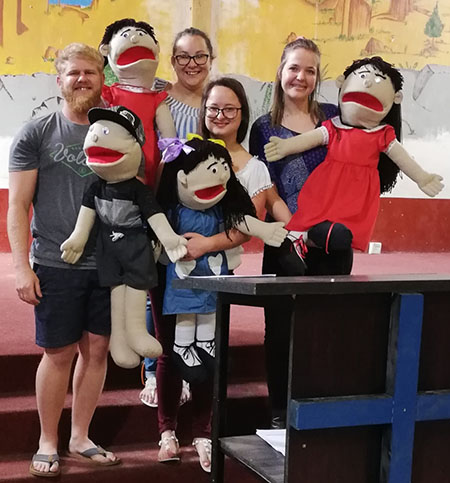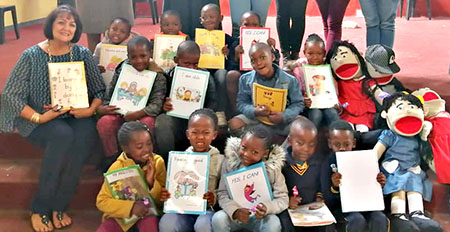Puppetry, as an educational tool, forms part of the North-West University’s (NWU’s) final-year curriculum for all teachers training within the foundation phase (Grade R to Grade 3).
These students from the Faculty of Education at the campus in Vanderbijlpark are then required to apply their knowledge by hosting puppet shows at local schools.
The art of puppetry
According to Dr Ria Booysen, a senior lecturer in the faculty, putting puppets into the hands of educators can set the stage for valuable learning opportunities in many developmental areas.
“Puppets are engaging toys that can help support oral language skills and communication, social and emotional development, and help children learn and understand the world around them through safe, imaginative play,” explains Dr Booysen.
With this in mind students are taught puppetry skills from their first year of study. During their fourth year, the students have to practically incorporate puppets in their lesson plans, create life-like puppets themselves and be able to write interactive scripts inclusive of a moral lesson. In short: master the technical aspects of effective puppetry.
An annual puppetry workshop serves as a point of departure after which students have to develop their own characters and puppets. This includes methodological features such as manoeuvrability, different vocal accents and the identity of the puppets. Through the art of puppetry, the students are empowered to draw on all the knowledge and skills obtained during their four years of study within the scope of foundation phase education.
“Since puppetry encapsulates elements of all art forms such as literature, painting, sculpture, dance and drama it enables students to develop their creative abilities to the full,” explains Dr Booysen.
She furthermore explains that when the students create their scripts for a puppet show they have to adhere to strict set criteria. These include interactivity, being age conscious, linking to the content of the education curricula and making use of additional props to aid understanding and meaning.
Dr Booysen says that the students can also use their puppets to earn extra money by performing at schools and day-care centres and by doing so give way to supplementary entrepreneurial development.
The puppets are used to aid children in acquiring new knowledge, to work through trauma, to explain sensitive issues such as sexual abuse; racism and bullying as well as to enhance vocabulary and communication skills.
Impacting the community
During a recent community outreach project, the faculty extended a helping hand to the El Shaddai Primary School by hosting a day of learning. The day saw students exhibit their puppetry skills and engaging young minds through storytelling, reading and music.
Second-year students presented the school with a collection of custom books aimed to simplify language instruction. These books, uniquely compiled by each of the students, illustrate the concept of doing words and contain illustrations and sentences in Afrikaans, English and Sotho.
The day of learning ended on a high-note with a lively puppet show.

Ruan Strauss, Amoré Hattingh, Sharleze Lourens and Conita Oosthuizen with their puppets.

Dr Ria Booysen and a group of happy learners with their new books.
